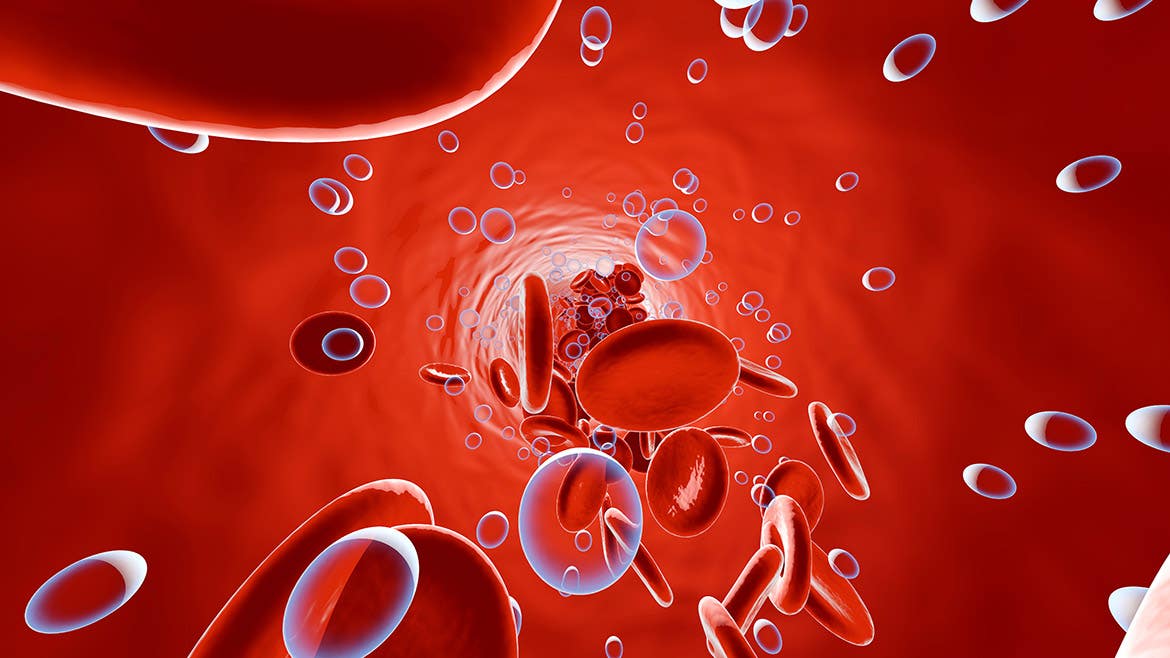Why Does Your Heart Rate Increase When You Exercise?

Source: Maridav/Shutterstock.com
When a person exercises, they are typically focused on their form. Or that intense burning sensation in their legs, arms, abdomen or back.
However, what they are not often focused on is their heart.
However, the heart is a very interesting muscle and has led many to ask:
Why does your heart rate increase when you exercise?
While quality exercise heart rate monitors and premium health armbands show an increased heart rate to be a fact of exercise, what drives this occurrence?
This is a fantastic question and one that we find worthy of exploration. If you have ever wanted to know the answer to this question, look no further.
Why Does Your Heart Rate Increase When You Exercise?
Much of this answer revolves around oxygen. The fact is that oxygen supply and demand is central to virtually all physically-demanding activities.
Oxygen enters the body via the lungs. From there, it is absorbed into the bloodstream and pushed out to the muscles via the heart.
When you exercise, your muscles require increased oxygen levels to exert additional energy and accommodate the growing intensity of the task. To provide the muscles with the oxygen that they demand, the body responds by upping its oxygen supply and taking in more. Thus, chemicals like norepinephrine are released by the sympathetic nervous system, which signal the body to accelerate its breathing rate (thus bringing in oxygen more quickly).


Source: Spectral-Design/Shutterstock.com
In turn, the heart responds by beating faster as a means to increase the blood flow (and oxygen supply) to the body’s various muscle groups.
At the same time, the sympathetic nerves also compress the body’s veins, thereby making them narrower. This increases the velocity of blood flow throughout the body, meaning that the heart must pump faster to continually recycle the returning blood.
The rate at which your heart will pump blood during exercise depends on a variety of factors, including:
- Age
- Your heart’s health
- Overall fitness level
- Intensity of the exercise
Due to this supply and demand, as well as the physiological processes playing out, the heart must work harder and increase its beats per minute to get oxygenated blood where it needs to go and to remove carbon dioxide.
Why Exercise Strengthens Your Heart
If you exercise often and have decided to purchase a wearable heart rate monitor, you have potentially noticed that your resting heart rate is lower than what is considered the average rate.
For those who are unaware, a “normal” resting heart rate is typically between 60 and 100 beats per minute.
The reason why those who are physically fit tend to have a lower resting heart rate is that their hearts have become stronger. As a result, their cardiovascular systems use less effort to supply the body with the necessary amount of oxygen.
In addition to a lower resting heart rate, this kind of cardiovascular conditioning can also make a person faster.


The reason for this comes back to the question of oxygen supply and demand. As the cardiovascular system becomes more efficient and effective at intaking and utilizing oxygen, the faster a person becomes and the longer they can sustain the intensity of their activity. Of course, this also works in conjunction with muscle conditioning.
Understanding the Heart’s Role in Exercise
So, why does your heart rate increase when you exercise?
Because, in a nutshell, as you exercise, the body’s response is to increase oxygen demands, which the heart is responsible for pushing all throughout the body.
While this is very foundational knowledge on the heart’s role in exercise and the benefits provided to the heart by working out, it is important to know how the body works.
If you are just getting started on your fitness journey, make sure you know how your heart is working by picking up one of Scosche’s waterproof heart rate monitors to use on your walks, runs, swims and other activities.